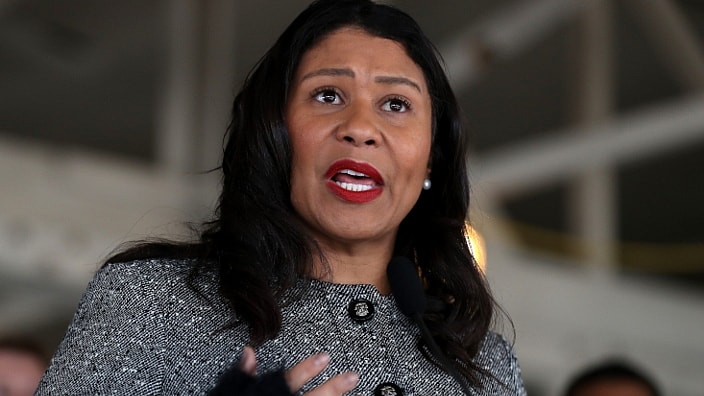Community leaders in San Francisco are calling for the city to turn over a historic community space to the Black community, and they are getting support from a famous actor who attended high school in the district.
The Fillmore Heritage Center — located at 1300-1320-1330 Fillmore Street in San Francisco, on the corner of Fillmore and Eddy streets —opened in 2007 with its primary tenant as Yoshi’s, a noted jazz club and restaurant. Yoshi’s closed six years ago, and other than small pop-ups and failed businesses, the 50,000-square-feet space, which also features a music venue and other small rental spaces, has sat dormant under a tower of residences.

“I was born here and came here with my dad when there was magic on this street,” said San Francisco native son Danny Glover at a press conference on Monday, according to SFist. He said that the city has “not delivered on their promise” to revitalize the neighborhood.
“San Francisco City leaders have a moral obligation to right the racist wrongs that destroyed that culture and that community,” Glover said in a statement, “and allow the Fillmore Heritage Center to live up to the full meaning of its name.”
Rev. Amos C. Brown, a former city supervisor, is calling on San Francisco Mayor London Breed and the city’s newly formed Reparations Advisory Committee to donate the center to a new nonprofit representing the community.
“The Fillmore was the vibrant hub of San Francisco’s Black community before it was destroyed by inherently racist programs designed to remove Black families and culture,” Brown said. “Turning over the Fillmore Heritage Center to the local Black community is an extremely important first step in righting that immense historic wrong.”
Breed represented the Fillmore area as District 5 supervisor and president of the Board of Supervisors before she became Frisco’s mayor.
Brown, also pastor of the Third Baptist Church and president of the San Francisco chapter of the NAACP, added in a statement that “reparations cannot be confined to big national or statewide actions.”
Brown noted that “structural racism has had a devastating effect on people’s neighborhoods, homes, businesses and daily lives, so reparations also must include significant actions on a local level. Returning the Fillmore Heritage Center to the community to which it rightfully belongs is exactly that kind of action.”
Mayor Breed has not committed to turning the center over but has said she “would like to see the venue open. I would like to see the venue become a huge success,” according to The San Francisco Chronicle. “I don’t want to see the venue continue to be a financial drain on the city. And so that’s one of the things that we need to work towards, but ultimately a lot of the guiding principles are how we make good decisions about them and have everything to do with state law.”
Breed, the city’s first Black female mayor, has served since 2018, when she won a special election after the death of Mayor Ed Lee. She has focused much of her tenure on funding housing and homelessness programs.
The African American Reparations Advisory Committee was created earlier this year. Fifteen appointed members sit on the committee, which was established to “compensate Black people whose ancestors not only provided free labor through slavery in the U.S. from 1619 to 1865 but also suffered injustices during the Jim Crow era that followed,” according to an NBC Bay Area report.
Have you subscribed to theGrio podcasts “Dear Culture” or “Acting Up?” Download our newest episodes now!
TheGrio is now on Apple TV, Amazon Fire and Roku. Download theGrio.com today!

